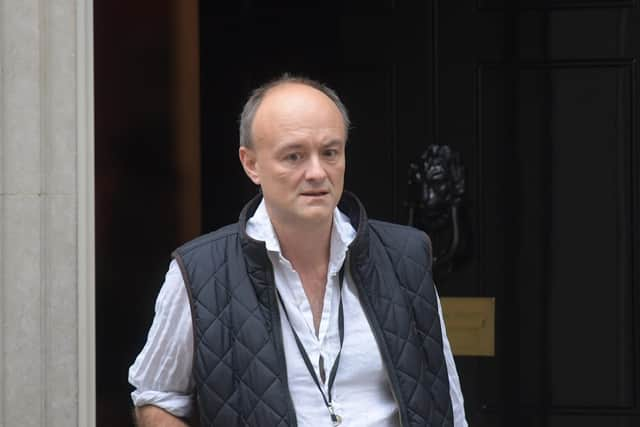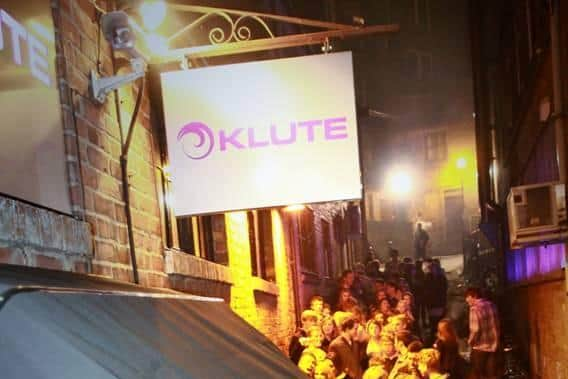'Rasputin', 'bogeyman' or 'mild mannered person'? Just who is Boris Johnson's North East-born advisor Dominic Cummings?
and live on Freeview channel 276
Before this weekend you may have only heard his name in passing on the evening news as footage shows him sauntering – or “skulking”, as his critics would no doubt prefer – into Downing Street for another Cabinet meeting with Prime Minister Boris Johnson.
But now Dominic Cummings is a household name in millions of homes after the news broke that he travelled between London and Durham in the early stages of the lockdown, and took a drive to Barnard Castle, after developing symptoms of coronavirus.


Advertisement
Hide AdAdvertisement
Hide AdPrime Minister Boris Johnson has supported his chief advisor on a number of occasions during daily coronavirus briefings on national TV, as backbench MPs have spoken out against the Government’s stance and it has even led to a ministerial resignation.
The furore even saw an unprecedented press conference led by Cummings in the Downing Street Rose Garden, where he faced questions from the national media.
So who exactly is Number 10 special advisor Dominic Cummings and what is his role in the ongoing soap opera from behind the closed doors of Downing Street?
As is commonplace with such usually faceless figures and the whispering they inevitably attract from detractors, the 47-year-old’s back story is open to both dispute and distortion.


Advertisement
Hide AdAdvertisement
Hide AdClaims that he worked as a bouncer in his home city of Durham at its Klute nightclub, for instance, are downplayed to him merely taking people’s dosh once they were inside the door.
Then, to add fuel to the Rasputin comparison, there is the three years he spent in Russia’s fledgling democracy after graduating from Oxford University in ancient and modern history in 1994.
While there are tales that these ventures included working for a failed airline, what is not in doubt is that his career soon took off on his return home in 1997.
Highlights included working behind the scenes on the 2004 successful campaign against the formation of a North East Regional Assembly.
Advertisement
Hide AdAdvertisement
Hide AdSmall beer, you might think, compared to the current Brexit and General Election battles, but certainly a burning debate of its time locally.
Noted North East public relations businessman Graham Robb, who was a spokesman for the victors, recalls: “He had a rapier-like attention to detail and had read all of the referendum bill, understood it and simplified the message so that voters could engage with a complex debate.”
Job emphatically done – this particular “yes” vote attracted only 20% – he is thought to have moved back to his family farm on the outskirts of Durham City before becoming leading Conservative Michael Gove’s special advisor in London between 2007-2014.
In 2011 he married wife Mary, the daughter of Sir Humphry Wakefield, an English baronet and expert on antiques and architecture who owns and refurbished the 13th Century Chillingham Castle in Northumberland.
Advertisement
Hide AdAdvertisement
Hide AdWith Gove and co assuming power at the expense of the Coalition Government following the 2015 election, Cummings was recruited to run the Vote Leave campaign after Prime Minister David Cameron kept his promise to his party’s Euro-sceptic wing by announcing a European Union Referendum.
Triumphing again by a far narrower margin of 52%-48% in 2016, he is widely acknowledged as the creator of the “Take Back Control” slogan that appeared across literature, placards and social media crusades.
This success led to his appointment as senior advisor to the pro-Brexit Johnson when he became PM in July and his subsequent presence at that Cabinet table.
Not for the first time in recent political history, think Alastair Campbell in his spin doctor’s pomp during Tony Blair’s reign as Labour Prime Minister, the growing influence of a non-elected individual – in Cummings’s case, he is not even a Conservative Party member – has attracted criticism across Westminster’s benches.
Advertisement
Hide AdAdvertisement
Hide AdProfessor Thom Brooks, dean and chair in law and government at Durham University’s Law School, said: “He is seen very much as a Rasputin figure who is distrusted and disliked but who gets things done.
“Solving Brexit though is different to what he has done in the past. We know he didn’t like regional assemblies, we know he didn’t like Europe. But what does he stand for? It is usually easier to be against something than for something.”
Mr Robb, a former Conservative media advisor himself, offers a more sympathetic portrayal of his talents.
While stressing that he has not met him since the 2004 campaign, he adds: “Labour will portray him as a bogeyman out of frustration from winning votes in Parliament but not the hearts and minds of the public.
Advertisement
Hide AdAdvertisement
Hide Ad“They would like the sketch writers of Westminster to promote him as a hate figure.
“In truth, he is quite a mild mannered person from the north who speaks in very plain tones. He gets to the heart of the issue very quickly.”
Whether those hearts and issues include advising Johnson to advise the Queen to accept the recent ill-fated proroguing of Parliament is again subject to debate.
Prof Brooks, however, who is a Labour Party member, feels that the pair’s “destinies are intertwined” around the ongoing Brexit impasse and the General Election.
Advertisement
Hide AdAdvertisement
Hide AdSpeaking before the October 31 Brexit deadline was extended to January 31, he said: “People will be looking for someone to blame if Boris ends up delivering a trick rather than a treat on Halloween.
“Back in 2017, when Theresa May failed to win a majority for the Conservatives at the election, it was Nick Timothy, who advised May, who took the blame and left.
“People are always looking for a fall guy and it is unlikely if things go wrong that it will be Boris who takes the blame.”
That could also be said about the current situation and Cummings’s time working on one side or the other of that Durham nightclub door might prove useful if Boris’s bouncers come calling.